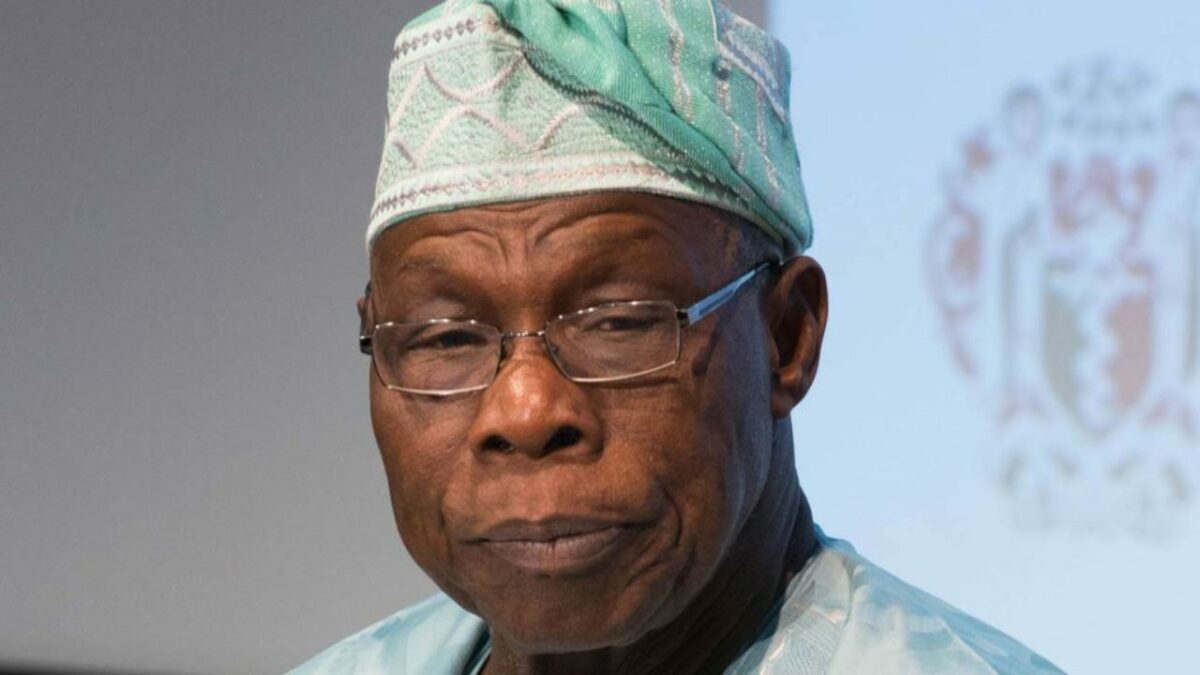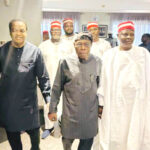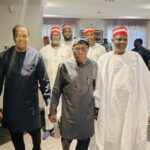With only a couple of weeks left until the 60th Independence “celebrations”, it’s expected that the president’s address to the nation will be as bland and uninspiring as has become the norm.
Independence Day speeches are supposed to inspire patriotism and reflect on the progress the nation has made. Unfortunately, they have been turned into monologues of self-praise coupled with warnings of dire consequences to perceived opponents.
They never contain expressions of empathy for the worsening suffering as if expressing regret for some actions, or showing sympathy towards suffering is a sign of weakness. Nigerians are increasingly frustrated because, despite its failures, the current administration has zero-tolerance for criticism and act as if they alone have a monopoly of wisdom.
It’s becoming routine to detain those who vociferously criticise government despite freedom of speech and political opposition being integral parts of democracy. One Nigerian who doesn’t fear arrest perhaps because of his former status is former President Olusegun Obasanjo (OBJ).
He, more than any other former Head of State has taken it upon himself to publicly castigate administrations, which came after his. There really is no reason why a nation like Nigeria, which is fast becoming a failed state should respect any of its past leaders. However, OBJ appears to be entitled to freedom of speech, which is denied most Nigerians. Recently, while delivering an address entitled “Moving Nigeria Away from Tipping Over”, OBJ said that the nation is slowly becoming a failed state and a basket case that urgently needs to be pulled back from the brink.
He said that he had never seen the country so divided because “old fault lines that were disappearing have opened up in greater fissures with drums of hatred, disintegration, and separation…”.
OBJ also said, “it will amount to a dangerous and destructive self-delusion for anybody to claim that all is well in Nigeria”. There can be little disputing that he is correct in his description of the problem, however, his postulation that all this is a manifestation of recent mismanagement of diversity and socio-economic development of our country” is incorrect.
Nigeria started on the path to retrogression and self-destruction with the kleptocratic disastrous military regimes and imposition of the fraudulent 1999 Constitution. However, there can be no denying that recently the situation has been exacerbated by ill-considered borrowing, reckless spending, nepotism in appointments, lopsided developmental projects, and tribal/ religious favouritism.
Government spokespersons couldn’t come up with any intelligent defence against OBJ’s arguments, and as is their habit they resorted to fallacious “argumentum ad hominem” childishly calling him the “Divider in Chief”, impressing no-one except themselves! Ironically, they asked him to account for $16 billion power fund or keep quiet because he midwifed the national rot!
They evidently didn’t see the irony of a government claiming to be on an anti-corruption not prosecuting the alleged misappropriation of $16 billion! There is little likelihood that issues such as this and how come the Niger Delta Development Commission (NDDC) director who forfeited N250,000,000 has not been identified? Or who owns the Ikoyi millions? will be addressed on October 1st.
The problem for the government isn’t how to deal with the regular disparaging by OBJ, but rather how to overcome the credibility gap between itself and the people.
The gap is widening and it’s not surprising. The ruling All Progressives Congress (APC) has a well-earned reputation for making empty promises during elections. Opposition party politicians and critics in the social media have dug up some of the promises such as repairing light within six months, or re-starting the Nigeria Air using the presidential fleet and so on, which place the government in a bad light. There is no disputing that Nigeria is still being mismanaged and government resources squandered or misappropriated.
For example, a verification exercise for civil servants in Niger State revealed fraudulent payments of salaries above their level.
An “office messenger”, reportedly received the salary of High Court Judge and quite incredulously a “fake” commissioner of agriculture received salary for two years!
In another waste of money, N27 billion is to be spent “renovating” the National Assembly (NASS) buildings despite the fact that the place isn’t dilapidated and NASS has an annual maintenance budget. As if all this is not bad enough, in spite of the myriad of health and economic problems, the federal government intends to borrow and invest part of the money in the Nigeria Television Authority (NTA), which will never be commercially viable because their programme content is poor and they only air government views.
Perhaps, the most disturbing piece of news is that having increased the pump price of fuel the federal government has concluded plans to distribute 2,000 buses whose cost has naturally not been disclosed, to supposedly cushion the effects.
Most of the country operates in the informal economy, where people struggle to survive by running small businesses like barbing and hairdressing salons, tailors, spray painters, printing presses, beer parlours, and canteens etc, which all use petrol-fuelled generators.
It’s beyond comprehension how anyone believes these buses will in any way cushion the cost of powering businesses, home power generation, grassroots transportation by Okada motorcycle, or the transportation of farm produce from rural to urban areas by diesel-powered lorries.
Furthermore, the pathetic condition of the national road network makes Nigerian roads totally inappropriate for the operation of new vehicles. It’s really no surprise that the nation has become a graveyard for new buses bought by government, which never last more than four years before being abandoned. If 2,000 buses are divided by 774 local government areas, it approximates to 2.58 buses per local government nationwide!
The success of international money lending institutions is based upon the failure of governments in developing nations like Nigeria who habitually misspend borrowed money, which they have neither the resources, ability or indeed any plan to repay.
Whatever his faults, OBJ wiped out foreign debt and saved Nigeria money. If he now decides to highlight the truth that Nigeria is sliding into irrecoverable debt, economic collapse and religious or tribal conflict, they should listen rather than be derided as Divider-in-Chief.

 Join Daily Trust WhatsApp Community For Quick Access To News and Happenings Around You.
Join Daily Trust WhatsApp Community For Quick Access To News and Happenings Around You.


